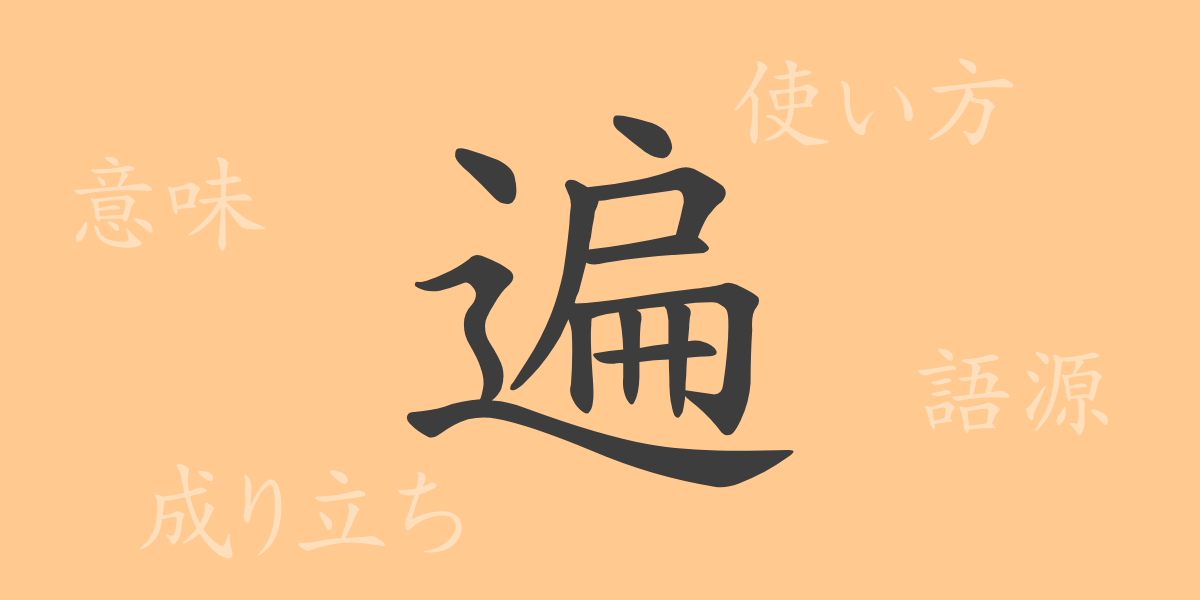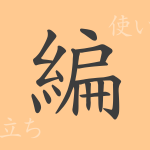“`html
In the Japanese language, there are numerous complex and beautiful characters with expansive meanings. Among them, the kanji character “遍(hen)” is deeply rooted in our daily lives, yet its origins and diverse uses are not widely known. This article delves into the origins, meanings, uses, and even idiomatic expressions and proverbs that include “遍(hen),” unveiling the full scope of this fascinating character.
Origins of 遍(hen)
The kanji “遍(hen)” originated in ancient China. Tracing its etymology, “遍(hen)” is composed of the radical “辡(bian)” which indicates actions spanning a wide range, and “辵(chuo)” which signifies movement. This combination led “遍(hen)” to mean actions or movements that cover an entire area.
Meanings and Uses of 遍(hen)
“遍(hen)” means “to span the entirety” or “to cover a wide range.” Specifically, “一遍(ippen)” signifies covering the entire scope once, while “普遍(fuhen)” means to reach broadly and generally, used in various contexts. Additionally, in Buddhist terminology, “遍(hen)” means “everywhere” or “thoroughly.”
Readings, Stroke Count, and Radical of 遍(hen)
“遍(hen)” has multiple readings in Japanese, primarily read as “ヘン(hen)” in on’yomi (音読み) and “あまねく(amaneku)” or “あまねし(amaneshi)” in kun’yomi (訓読み).
- Readings: On’yomi – ヘン(hen) / Kun’yomi – あまねく(amaneku), あまねし(amaneshi)
- Stroke Count: 12 strokes
- Radical: 辵(shinnyou)
Idiomatic Expressions, Proverbs, and Words Using 遍(hen)
Idiomatic expressions and proverbs that include “遍(hen)” often highlight its expansive and universal nature. For example, “普遍的(fuhenteki)” means common to all places and times, while “一遍上人(ippen shounin)” is an honorific term for the Kamakura period monk, Ippen. Other examples include “遍歴(henreki)” which means traveling to many places, and “遍路(henro)” which refers to a pilgrimage to sacred sites.
Summary of 遍(hen)
Through this article, we hope you have gained an understanding of the rich meanings and uses of the kanji “遍(hen).” As a common kanji in Japanese, “遍(hen)” is used in various forms within our language. Recognizing its presence can lead to a deeper appreciation of Japanese expressions. Let’s continue to explore the depth of the Japanese language and the allure of kanji characters.
“`

























